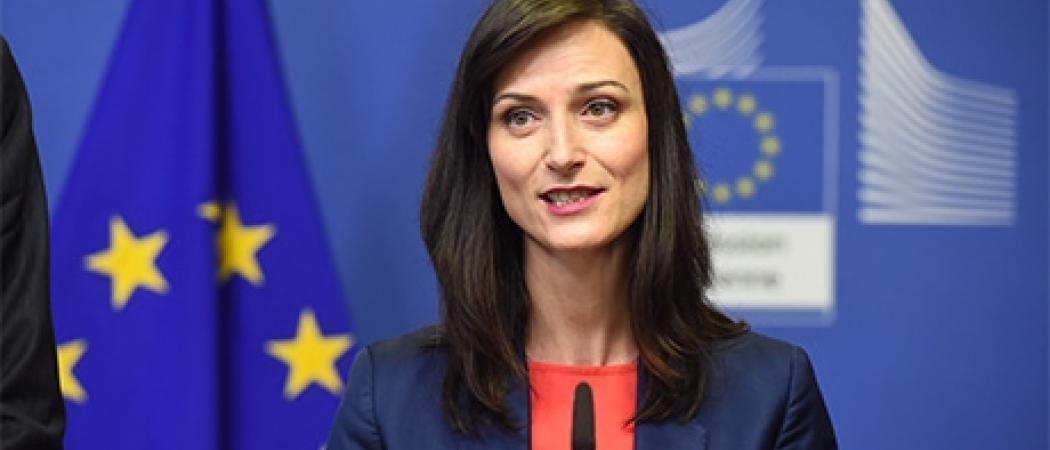EU commissioner for research and innovation announces Women TechEU, an EIC-led initiative that will offer coaching, mentoring and funding to promising female tech entrepreneurs.

Last year was a remarkable year for women in science. Two scientists, Emmanuelle Charpentier and Jennifer Doudna, one from the EU and one from the US, received a Nobel Prize for their discovery on the CRISPR-Cas9 genetic scissors. It was the first time that the Nobel Prize in Chemistry was awarded to two women in the same year in its 119-year history. It is amazing to see how the impact of women in science has grown exponentially since Marie Curie became the first women to receive a Nobel Prize in 1903. It sends an important message to younger generations of women and the world: We need your skills, talents and solutions.
Better science
While gender equality is important in and of itself, I would like to stress that having more women in science serves another, maybe even greater purpose: better science. The reason that we could start vaccinations in less than a year from the start of the coronavirus outbreak in Europe is because of the discoveries of amazing women scientists. Because of Katalin Karikó, a scientist from Hungary that since 1990 has worked tirelessly on developing mRNA technologies that are now at the basis of our COVID-19 vaccines. Because of Özlem Türeci, a German physician, scientist and entrepreneur who co-founded BioNTech, the first company to receive vaccine approval from the European Medicines Agency. Because of all the women in research and innovation across Europe and the world that have contributed to new treatments, diagnostics and vaccines.
That is why, I am determined to continue stepping up EU efforts to increase gender equality in education, culture, sports and research and innovation. The latest “She Figures” report, our flagship publication monitoring the state of play on gender equality in research and innovation, indicates a persisting under-representation of women in research and innovation. All disciplines considered, only a third of researchers in the EU are women and only 15% in the fields of Science, Technology, Engineering, and Mathematics (STEM). Even more striking, women represent less than 10% of patent holders, only 8% of European startups are founded by all-women teams and only 25% are founded by a team that includes at least one woman.
A changing mindset
We need more innovative ways of tackling gender stereotypes among the younger generations. That is why on International Women’s Day 2020 I started a yearlong social media campaign - #EUwomen4future. Since then, I have had the privilege to highlight the remarkable achievements from European women in research, innovation, education, culture and sport. Because of this campaign, a database of talented women from across Europe remains and we will continue supporting and recognizing them and all other amazing women that have made an impact.
Another concrete example of how we are addressing gender stereotypes in science is the project ‘Nobel Run’. This EU-funded project designed a board game where players have to manage a research team, hire doctoral students and researchers, publish articles and get funding through international projects, with the help of top women scientists and inventors. The goal? Winning the Nobel Prize.
A bright future
This is the moment to reaffirm our commitment and take the next steps towards true gender equality. That is why we made sure that integration of the gender dimension into the design of projects funded under Horizon Europe, our new EU research and innovation programme, will be a standard requirement. Furthermore, having a gender equality plan in place will become an eligibility criterion for public bodies, research organizations and higher education establishments.
Now let us talk business. As I mentioned before, when it comes to Europe’s booming technology industry the overwhelming majority of start-ups are founded by all-male teams. We can and must do better. That is why today, on International Women’s Day, I am proud to announce “Women TechEU”, a brand new initiative, spearheaded by the European Innovation Council, to support women-led deep-tech startups, and give them a boost to grow their company into the deep tech champions of tomorrow.
These actions are complementary to those from other EU programmes, such as ERASMUS+, with strong synergies with the transformative agenda for higher education institutions, the European Universities alliances, and the European Institute of Innovation and Technology – which will offer training in digital and STEM skills to 40,000 schoolgirls.
We need more women talents for better science, research and innovation. It is vital for ensuring sustainable and inclusive twin digital and green transitions, and recovery from the pandemic. I call upon all research organisations, universities, businesses, governments and citizens to join me in realising more inclusive, equal and better research and innovation.





 A unique international forum for public research organisations and companies to connect their external engagement with strategic interests around their R&D system.
A unique international forum for public research organisations and companies to connect their external engagement with strategic interests around their R&D system.